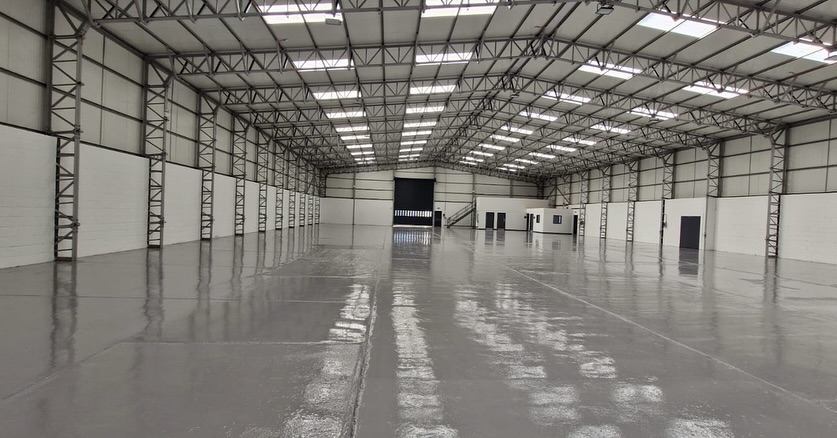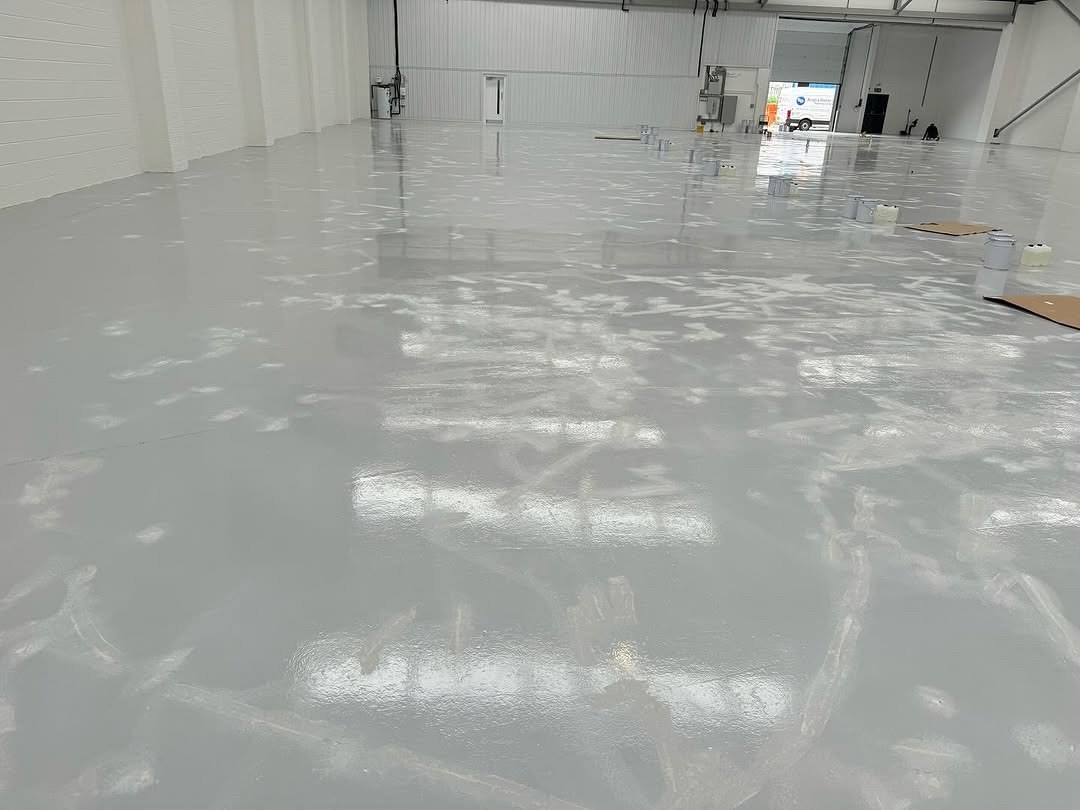Epoxy flooring provides 15-20 years of seamless, chemical-resistant performance at £11-15 per m², ideal for heavy industrial use. Vinyl flooring costs £11-15 per m², lasts 10-15 years, and offers easier repairs but creates seams that trap moisture and bacteria, making it less suitable for wet environments or heavy machinery.
The debate between epoxy and vinyl flooring for commercial spaces often comes down to misconceptions about durability and cost. While both serve commercial markets, they're fundamentally different products designed for different challenges. Our resin flooring systems have replaced failed vinyl installations in dozens of London facilities, giving us unique insight into when each system truly excels.
How Long Does Each Floor System Really Last?
Epoxy flooring bonds chemically to concrete substrates, creating a monolithic surface that typically lasts 15-20 years in commercial environments and 10-15 years under heavy industrial use. The seamless nature means no weak points where water or chemicals can penetrate, significantly extending the system's life.
Vinyl flooring, whether sheet, tile, or luxury vinyl plank (LVP), relies on adhesive bonds that degrade over time. In commercial settings, expect 10-15 years from quality vinyl, but only 5-8 years in areas with heavy wheeled traffic or moisture exposure. Seams between tiles or sheets represent failure points where lifting typically begins.

Breaking Down the True Costs
| Cost Factor | Epoxy Flooring | Vinyl Flooring |
|---|---|---|
| Material Cost | £11-15 per m² | £11-15 per m² |
| Installation Cost | £11-15 per m² | £11-15 per m² |
| Subfloor Preparation | £11-15 per m² | £11-15 per m² (levelling critical) |
| Total Initial Cost | £11-15 per m² | £11-15 per m² |
| Maintenance (annual) | £0.50-£11-15 per m² | £11-15 per m² |
| Replacement Cycle | 15-20 years | 10-15 years |
While initial costs appear similar, vinyl's need for perfect subfloor conditions often adds significant preparation expense. Any imperfections telegraph through vinyl, whereas epoxy's self-levelling properties can accommodate minor substrate variations.
Installation Process and Business Disruption
Epoxy installation requires careful timing but delivers a permanent solution:
- Day 1: Surface preparation and priming
- Day 2-3: Base coat and body coat application
- Day 4: Seal coat and line marking
- Day 5: Light foot traffic, Day 7: Full traffic
Vinyl installation appears simpler but hides complexities:
- Extensive subfloor levelling (often 2-3 days)
- Moisture testing and potential DPM installation
- Adhesive application and vinyl laying (1-2 days)
- Welding seams for sheet vinyl
- Immediate foot traffic, 24 hours for wheeled traffic
Considering a Flooring Upgrade?
Our experts assess your specific needs to recommend the most cost-effective flooring solution. Free site surveys available across London.
Book Your Free AssessmentWater and Moisture Performance
Epoxy creates a completely impermeable barrier when properly installed. Water, oils, and chemicals remain on the surface for easy cleaning. This seamless protection extends up walls with coving details, creating a waterproof tray effect ideal for wet process areas.
Vinyl itself is water-resistant, but the seams and edges create vulnerability points. Water penetration at seams causes adhesive failure, leading to lifting edges and bacterial growth beneath the flooring. Even welded seams in sheet vinyl can fail under thermal cycling or chemical exposure.
Heavy Load and Traffic Performance
Industrial epoxy systems handle loads exceeding 50 N/mm², supporting heavy machinery, racking systems, and continuous forklift traffic. The rigid structure distributes point loads across the substrate, preventing indentation or crushing.
Vinyl flooring, being flexible, indents under heavy static loads. Office chairs create permanent impressions, while pallet racking can pierce through to the substrate. Wheeled traffic causes rippling and stretching, particularly at turns and pivot points where lateral forces concentrate.

Repair and Modification Capabilities
Epoxy repairs require professional intervention but blend seamlessly when properly executed. Damaged sections can be cut out, re-primed, and patched with matching material. Colour matching might show slight variation, but structural integrity fully restores.
Vinyl offers easier DIY repairs - individual tiles can be replaced, and sheet vinyl can be patched. However, replacement sections rarely match aged flooring exactly, creating a patchwork appearance. Adhesive compatibility between old and new sections often causes renewed failures at repair boundaries.
Hygiene and Cleaning Considerations
Seamless epoxy flooring eliminates hiding places for bacteria and contaminants. The non-porous surface withstands aggressive cleaning chemicals and steam cleaning without degradation. This makes epoxy essential for food safe flooring and healthcare facilities.
Vinyl's seams, even when welded, create microscopic channels where bacteria colonize. Regular deep cleaning can actually worsen the problem by forcing moisture into seams. The surface also scratches more easily than epoxy, creating additional bacterial harbourage points.
Making the Right Choice for Your Facility
Choose epoxy flooring when:
- Operating industrial facilities with heavy machinery
- Managing wet process areas or chemical exposure
- Requiring HACCP-compliant hygienic surfaces
- Planning long-term ownership (10+ years)
- Needing custom colors or safety demarcation
Consider vinyl flooring for:
- Temporary installations or leased spaces
- Office environments with light foot traffic
- Areas requiring sound dampening properties
- Spaces where decorative patterns are priority
- Budgets requiring phased replacement options
For most commercial and industrial applications, epoxy's seamless durability and hygiene advantages justify any premium over vinyl. The elimination of seams alone prevents countless maintenance issues that plague vinyl installations in demanding environments.
Explore our guides on epoxy versus tiles for another alternative, or learn about applying epoxy over existing floors to avoid removal costs.
Transform Your Commercial Space
Whether upgrading from vinyl or choosing your first industrial floor system, we provide honest assessments and competitive quotes for lasting solutions.
Get Your Free Quote Today